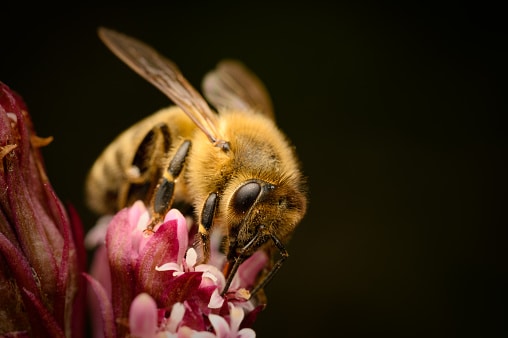I: What’s your name, surname and role?
G: I am Giorgio Sperandio, an entomologist and an ecologist.
I: Could you tell us tweet style, what your research field is?
G: I deal with the development of models, i.e. tools that allow us to simulate, for example, how a population of insects evolves over time or their distribution over time and space and these tools are then used to support the management of non-insects. Not only bees and pollinators but also plant parasites.
I: When you were a kid, what did you dream of becoming once grown up?
G: I was born with Jurassic Park, Indiana Jones so probably these films also influenced the way I wanted to approach my future work. I have always had the soul of an explorer and a lover of nature. From an early age I used to go around collecting insects and plants even for my personal collection and therefore in reality the passion for nature was born as a child. Obviously, with my studies I was able to increase and deepen my knowledge about the various aspects of nature. It can be said that this passion has ancient origins in my history!
I: Is this how it went or did things change in the meantime?
G: Let’s say that I imagined a more field job and instead today I do a more office job, on the computer developing models. I deal with entomology and understanding how organisms relate to the environment in which they are found. My “Me Child” can be considered quite satisfied!
I: Tell us the two research areas that are the most interesting according to you
G: I studied natural sciences so I have a naturalistic background. Definitely Biology where the evolution of the living is studied starting from single cells to animals, plants, bacteria, algae, fungi etc… that we can observe today. And then I would say the ecology thanks to which we study the relationships that intersect within an ecosystem and how the components of the living ecosystem interact with each other but also how the living interacts with the non-living and vice versa.
I: According to you, what’s the main threat against bees and pollinators in general nowadays?
G: There are many threats, for example the fragmentation and reduction of habitats. Pollution and the use of chemicals is another factor that, for example, in agriculture can have negative effects on pollinators. Even climate changes or in any case phenomena of presence of pollinators and the flowering of plants. This leads pollinators not being able to find resources when they need them and vice versa. In addition, there are also invasive species / parasites or species that are introduced into the ecosystem due to the movement of humans or goods that have no competitors and are free to proliferate. A complex problem that requires different knowledge in different fields to be solved.
I: If you had a budget of 1M€, how would you use it to protect pollinators?
G: One of the main problems is that we don’t have harmonized methods for monitoring the status of pollinators around the world. I would invest this money to try to develop this methodology and also tools or indicators that allow us to quantify the health of a pollinator community. Above all, their ability to guarantee pollination services as well as all the other services that these pollinators provide and which are the basis of maintaining an ecosystem.
I: According to you, which scientific discoveries within your field could realistically be made in 5-10 years which could make a difference in protecting pollinators?
G: Sometimes 5-10 years is not enough to solve these problems but I see that nowadays many are heading in the direction of trying to minimize the loss of insects. Ideally, it would be best to reduce this through policies and practices that can support this need. At a European level, for example, a lot is being invested in the creation of protected areas, trying to make our agricultural systems more sustainable, more resilient and diversified and therefore more able to maintain a pollinator community. It would also be important to reduce the use of pesticides, we are moving in this direction with the Green Deal and all these other policies that the EU is implementing and which should therefore give results in this period of time.
I: What’s your favorite insect?
G: Let’s say I’m a bit biased. I started my career by studying honeybees. If I wanted to find a group of insects I would say the social ones. I was very fascinated by these studies precisely because I was able to study how a bee colony works. It can be considered a superorganism, where the bees, which are the cells, carry out their actions according to its needs. Raising offspring, searching for food and resources, thermoregulation, it is fascinating to see how these different groups of organisms manage to keep a colony stable and viable.
